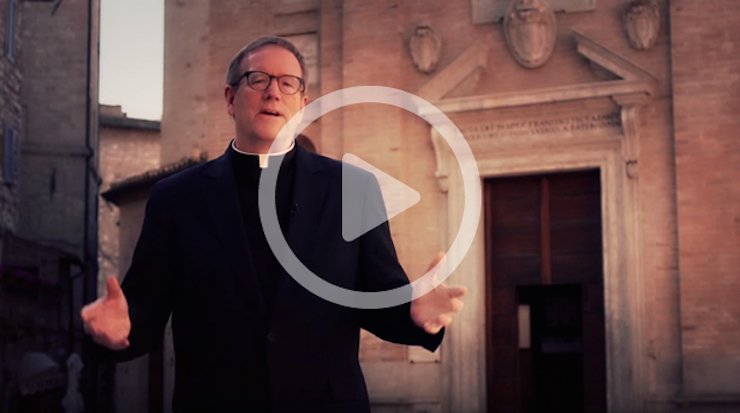

Yet there is nothing saccharine here, nothing cheesy, nothing pop-trendy. Having talked with Father Barron and his colleagues at Word on Fire, his media ministry, throughout the production of ∼atholicism, I can testify that this was a great labor of love: love for the Lord, love for the Church, and love for the truths the Church teaches.


In 10 episodes that take the viewer around the Catholic world, from Chartres to the slums of Calcutta and dozens of points in-between, Father Barron lays out the Catholic proposal in a visually stunning and engaging series of presentations that invites everyone into the heart of the faith, which is friendship with Jesus Christ. Father Barron is an old friend (and a colleague on NBCs Vatican coverage), but Ill risk the charge of special pleading by stating unequivocally that Father Barrons ∼atholicism, a 10-part series premiering on public television stations around the country this fall, is a master work by a master teacher. The man responsible for this feat is Father Robert Barron, a priest of the archdiocese of Chicago and a faculty member at Mundelein Seminary. The result is the most important media initiative in the history of the Catholic Church in the United States. Over the next four decades, I wondered whether someone, somewhere, at some point, would do a ∼ivilization-like series on Catholicism itself: a Grand Tour of the Catholic world that explored the Church as a culture through its teaching, its art, its music, its architecture”and above all, through the lives it shaped.

∼ivilization was the perfect way to finish a serious undergraduate liberal arts education it brought together ideas, art, architecture and history in a visually compelling synthesis of the history of western culture that respected Catholicisms role in shaping the West. In the fall of 1972, a group of us, philosophy majors all, approached our dean of studies, Father Bob Evers, with a request: Under the supervision of a faculty member, could we build a two-credit senior seminar in our last college semester around Kenneth Clarks BBC series, ∼ivilization, which had been shown on American public television.


 0 kommentar(er)
0 kommentar(er)
